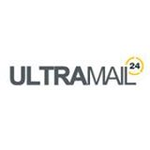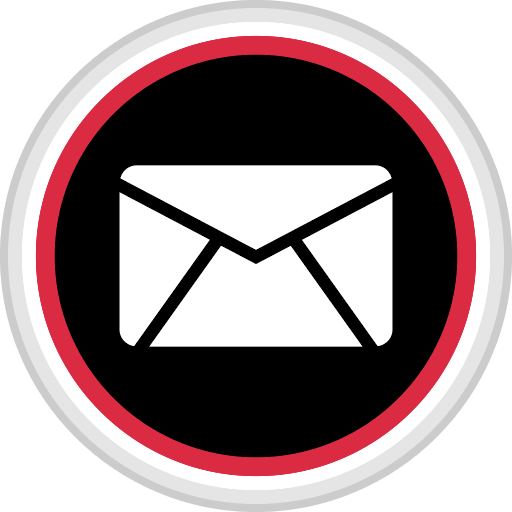Description

Emma

Recapture
Comprehensive Overview: Emma vs Recapture
As of my last update, there isn't a specific product or service widely recognized as "Emma, Recapture" in common market contexts. It's possible that this name refers to two different products or services, possibly in the realm of marketing, email automation, or similar sectors. I'll proceed by speculating on potential interpretations and offering general insights on what such products could entail if they were separate entities or a unified service. Note that you may need to check for specific developments or product names in this area that might have emerged after my last update.
a) Primary Functions and Target Markets
Emma:
-
Primary Functions:
- Emma is typically known as an email marketing platform designed to help businesses create and manage email campaigns. It offers tools for email design, list management, and analytics.
- Features may include customizable email templates, segmentation and personalization options, A/B testing, automation workflows, and detailed reporting.
-
Target Markets:
- Small to medium-sized businesses, non-profits, educational institutions, and occasionally larger enterprises looking for an intuitive email marketing solution.
- Ideal for organizations that emphasize brand consistency and engagement through email marketing.
Recapture:
-
Primary Functions:
- Recapture is generally known as an eCommerce email marketing tool focused on cart abandonment recovery, email campaigns, and automation tailored to boost online store revenue.
- Typical features include cart abandonment recovery, post-purchase follow-ups, win-back and loyalty campaigns, and integration with popular eCommerce platforms.
-
Target Markets:
- Online retailers, particularly small to medium-sized eCommerce businesses seeking to improve their conversion rates and customer retention through targeted email marketing efforts.
- Businesses using platforms like Shopify, WooCommerce, Magento, and similar.
b) Market Share and User Base
-
Emma:
- It has a substantial presence in the email marketing space, but it competes with bigger players like Mailchimp, Constant Contact, and ConvertKit. The market share is moderate, often drawing users looking for user-friendly options with strong brand design capabilities.
- The user base consists of a diverse range of industries, with a significant emphasis on organizations needing tools that support engagement-led strategies.
-
Recapture:
- The market share is more niche, focusing on eCommerce email marketing. It faces competition from services like Klaviyo and Omnisend, which also offer comprehensive solutions for online stores.
- Recapture's user base is more concentrated among small to medium-sized eCommerce operations looking to enhance their revenue through targeted recovery and loyalty strategies.
c) Key Differentiating Factors
-
Emma distinguishes itself through:
- A strong emphasis on design and branding, providing tools that help maintain consistency across email touchpoints.
- An intuitive interface geared towards users who may not have extensive technical expertise, making it accessible for teams of varying sizes and skills.
- Robust customer support and client service that are often highlighted as key differentiators.
-
Recapture sets itself apart with:
- A primary focus on solving the cart abandonment issue, a critical pain point for eCommerce stores, using advanced recovery tactics.
- Seamless integration with major eCommerce platforms, allowing for easy setup and immediate actionable insights for online businesses.
- Specific attention to revenue optimization and abandoned cart recovery metrics, helping businesses track ROI effectively and implement precise marketing strategies.
In conclusion, while Emma provides a broader set of tools for general email marketing applications with an emphasis on design and usability, Recapture offers specialized solutions focusing on optimizing revenue for online stores. Each has carved out distinct niches within the email marketing landscape, appealing to different segments based on their industry needs and marketing priorities.
Contact Info

Year founded :
1977
Not Available
Not Available
Germany
Not Available

Year founded :
Not Available
Not Available
Not Available
United States
http://www.linkedin.com/company/recapturegroup
Feature Similarity Breakdown: Emma, Recapture
As of my last update, I don't have detailed product-specific data for tools like Emma and Recapture. These tools are related to different domains—Emma being an email marketing software and Recapture typically known for its email and SMS marketing services primarily in the e-commerce space. However, I can provide a general framework for comparing software tools like these based on common features and attributes:
a) Core Features in Common
-
Email Campaign Creation:
- Both platforms offer tools to design and send email campaigns. These typically include drag-and-drop editors, template libraries, and customization options.
-
Automation:
- Both may provide automation features that allow for creating workflows for sending emails based on triggers or schedules.
-
Analytics:
- Both platforms likely offer analytics dashboards that provide insights on email open rates, click-through rates, conversion rates, and other metrics.
-
Segmentation:
- They often allow for audience segmentation based on user behavior, demographics, or other criteria to target specific groups effectively.
-
Integration Capabilities:
- Both offer integrations with various third-party services, such as e-commerce platforms, CRMs, and other marketing tools.
b) User Interface Comparison
- Emma: Known for its user-friendly interface, tailored towards marketers with varying levels of technical expertise. The design is often more polished, with an emphasis on ease of navigation and usability.
- Recapture: Typically focused more on functionality for e-commerce platforms, it might offer an interface that is slightly more utilitarian but effective for those specifically managing abandoned cart recovery and related tasks.
c) Unique Features
-
Emma:
- Personalization Tools: Emma might offer advanced personalization capabilities, allowing deeper customization of emails for specific segments.
- A/B Testing: Often includes robust A/B testing options to refine email strategies.
-
Recapture:
- Cart Abandonment Recovery: Specializes in features for recovering abandoned carts, including email and SMS follow-ups.
- Specific E-commerce Integration: Likely to have stronger direct integrations with e-commerce platforms such as Shopify or WooCommerce, aimed specifically at boosting sales recovery metrics.
This framework provides a general idea of how to assess these tools, but for exact and up-to-date details, it would be best to look directly at the respective product pages or contact each company for the most current information.
Features

Not Available

Not Available
Best Fit Use Cases: Emma, Recapture
Emma and Recapture are both tools geared toward enhancing marketing and sales strategies, but they serve slightly different purposes and therefore align with different types of businesses or projects. Let's delve into the specifics of each.
Emma
a) For what types of businesses or projects is Emma the best choice?
Emma is primarily an email marketing platform, known for its intuitive design, robust automation capabilities, and tailored email marketing solutions. It is particularly suitable for:
- Small to Medium Businesses (SMBs): Emma offers user-friendly tools that require minimal technical expertise, making it ideal for businesses with limited marketing resources.
- Marketing Agencies: Agencies that handle multiple client accounts can benefit from Emma's sub-account structure, allowing them to manage multiple campaigns efficiently.
- Event-Based Businesses: Companies that rely heavily on event marketing can utilize Emma's strong segmentation and targeting features to promote events effectively.
- Nonprofits and Educational Institutions: Emma’s templates and tools make it easy to communicate with donors or students, ensuring targeted and engaging messaging.
Emma excels in scenarios where personalized communication and customer engagement through email are critical. Its visual design and drag-and-drop features make it suitable for teams that prioritize design in their outreach.
Recapture
b) In what scenarios would Recapture be the preferred option?
Recapture is a specialized tool aimed at optimizing e-commerce operations, particularly for enhancing cart abandonment recovery. It is best suited for:
- E-commerce Businesses: Especially for stores using platforms like Shopify, Magento, or WooCommerce, Recapture helps in recovering abandoned carts and increasing checkout conversions.
- Businesses Focused on ROI: With its analytics and tracking features, Recapture provides insights into customer behavior, enabling businesses to refine their marketing strategies for higher returns on investment.
- Subscription-Based Services: Companies offering subscription products can leverage Recapture's capabilities for boosting customer retention and reducing churn through re-engagement emails.
Recapture is ideal when the primary goal is to reduce cart abandonment and bolster sales through targeted follow-up emails. It's a specialty tool designed for e-commerce efficiency and maximizing online revenue streams.
Catering to Different Industry Verticals or Company Sizes
-
Industry Verticals:
- Emma is versatile and can be tailored to various sectors, from retail to education and even hospitality, by giving prominence to brand-consistent communications and customer relationship management.
- Recapture is more vertical-specific, primarily fitting into the e-commerce and retail space due to its focus on sales recovery and conversion optimization.
-
Company Sizes:
- Emma scales well from small to medium-sized businesses. It offers features that SMBs need without overwhelming them and provides enough sophistication to support medium-sized enterprises.
- Recapture is typically best for small to medium-sized e-commerce businesses that require effective recovery solutions and are looking to maximize their current traffic and customer base without substantial investment into broader marketing software.
Both Emma and Recapture cater well to the mid-market, but each has distinct strengths depending on the business model and the marketing challenges the organization is facing. Emma is all about fostering engaging customer relationships via email, while Recapture zeroes in on optimizing the sales process and reducing losses through cart recoveries.
Pricing

Pricing Not Available

Pricing Not Available
Metrics History
Metrics History
Comparing teamSize across companies
Conclusion & Final Verdict: Emma vs Recapture
Conclusion and Final Verdict for Emma vs. Recapture
When comparing Emma and Recapture, it's important to evaluate both products based on various factors including features, usability, pricing, customer support, and target audience. Each platform has its strengths and weaknesses, offering different values depending on the user's needs.
a) Which Product Offers the Best Overall Value?
The best overall value depends significantly on the specific needs of the user. If advanced email marketing features with a focus on ease of use and design flexibility are priorities, Emma may provide better value. However, if recovering abandoned carts and boosting e-commerce sales are the main objectives, Recapture offers specialized features that may be more valuable.
b) Pros and Cons of Choosing Each Product
Emma:
-
Pros:
- User-friendly interface with intuitive drag-and-drop email builder.
- Robust segmentation and targeting capabilities.
- Strong customer support with personalized assistance.
- Wide range of templates and design tutorials suitable for businesses focusing on brand aesthetics.
-
Cons:
- Can be expensive for small businesses or startups.
- Some advanced functionalities may require a steeper learning curve.
- Limited integrations compared to other competitors.
Recapture:
-
Pros:
- Specializes in cart recovery, making it a strong choice for e-commerce businesses.
- Integrates seamlessly with major e-commerce platforms.
- Offers effective tools for recovering lost sales and increasing Average Order Value (AOV).
- Cost-effective with pricing that scales with business size.
-
Cons:
- Limited email design customization compared to broader email marketing tools.
- Primarily focused on e-commerce, may not suit non-retail businesses or those looking for general email marketing solutions.
- Fewer features for non-cart-related email marketing tactics.
c) Specific Recommendations for Users Deciding Between Emma vs. Recapture
-
For businesses focused on comprehensive email marketing with a need for creative freedom and effective audience engagement, Emma is recommended. Its user experience, design flexibility, and support make it suitable for companies where branding and professional-looking emails are critical.
-
For e-commerce businesses aiming to enhance revenue through cart recovery and post-purchase engagement, Recapture is the better choice. Its specialized focus on e-commerce scenarios ensures that the features offered are directly applicable to boosting online sales performance.
Overall, users should clearly define their primary needs and budget constraints before making a decision. Evaluating which platform aligns best with their business goals will lead to the most valuable return on investment.
Add to compare
Add similar companies



